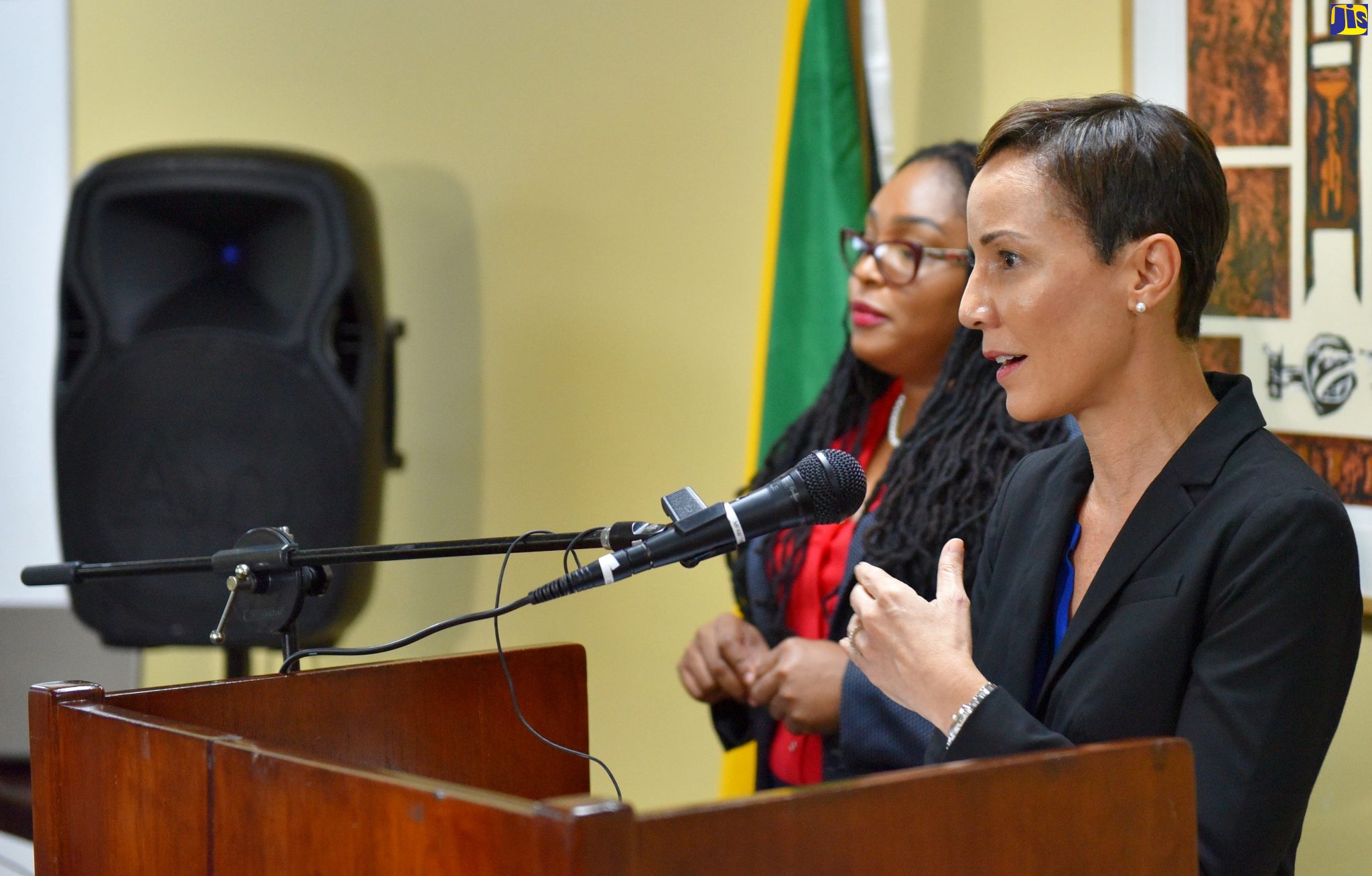Government to Review Protocols in Shiprider Agreement
By: , June 26, 2019The Key Point:
The Facts
- It was under this agreement that the Government waived primary jurisdiction in respect of five Jamaican fishermen who were taken into custody by the US Coast Guard in 2017 in Haitian waters.
- Four of the men have brought a case against the US Coast Guard for alleged mistreatment, following their arrest and detention.
The Full Story
The Government is to review the protocols and procedures for implementation of the Shiprider Agreement with the United States of America.
It was under this agreement that the Government waived primary jurisdiction in respect of five Jamaican fishermen who were taken into custody by the US Coast Guard in 2017 in Haitian waters.
Four of the men have brought a case against the US Coast Guard for alleged mistreatment, following their arrest and detention.
The American Civil Liberties Union (ACLU) has agreed to provide the men with legal representation and the matter is now before a court of law in the US.
Minister of Foreign Affairs and Foreign Trade, Senator the Hon. Kamina Johnson Smith, who made the announcement today (June 25) during a press briefing at her offices in New Kingston, noted that the review will be done to ensure that Jamaican citizens are treated in a humane manner and that their human rights are protected.
“When the Government of Jamaica waived its primary right to jurisdiction, it did not waive the rights of its citizens to be treated humanely…We are committed to reviewing the processes to ensure that we have no inadvertent gaps and where they are found that they be closed,” she said.
Mrs. Johnson Smith stressed that the Government takes the protection and promotion of the human rights of citizens very seriously, noting that the case brought by the men “represents a significant juncture in the implementation of the Shiprider Agreement.”
“While we cooperate with partner countries on the basis of a common adherence to international human rights laws, we are actively looking at what processes and what provisions can be inserted into the protocols, into our procedures to address the concerns that have been raised by this ACLU case,” she said.
Mrs. Johnson Smith pointed out that Jamaica does not have the financial nor infrastructural capacity to adequately monitor its 240,000 square kilometres of maritime space, which is almost 25 times its land mass, noting that it has been helpful, both nationally and regionally, to seek the support of partner countries “to address our very real issues with maritime security.”
“We remain steadfastly committed to working with our international partners to ensure that our seas are rid of the scourge of smugglers and traffickers who contribute to the violence that we experience in…our country,” she said.
Explaining the context within which the Government waived primary jurisdiction in this case, Mrs. Johnson Smith noted that in September 2017, the Government of Jamaica was advised that a vessel with five men on board had been intercepted by the US Coast Guard, having been allegedly observed in the act of “jettisoning items from the vessel into the sea.”
“We were further informed that they were intercepted on suspicion of being in possession of and transporting illicit drugs. The vessel was confirmed as registered in Jamaica and the men confirmed their Jamaican nationality to the US Coast Guard officers,” she said, noting that thereafter, a request was received by the Government of Jamaica for a waiver of jurisdiction.
Mrs. Johnson Smith said the waiver was granted subject to conditions laid down by the Government of Jamaica, including confirmation of the good health of the men, assurance that they would be made aware of their right to consular assistance and assurance that they would be provided with legal representation in any criminal prosecution.
“I can indicate categorically that we received written confirmation from the US authorities that these requirements would be met,” she said.
In the meantime, the Minister reminded that the Government has begun a process of dialogue with the US Government “and we will continue those discussions.”
She also reminded that a United States delegation is expected to come to Jamaica “to discuss these matters in a more pointed and technical way”. However, before this is done, a national stakeholder meeting is to be held with the relevant ministries, departments and agencies, so they can have a cohesive position on the matter.
Mrs. Johnson Smith said through the meeting with the US delegation, the Government will not only get first-hand assurance about their commitment to the spirit in which the partnership was entered, “but that our processes, our procedures and our protocols on both sides are not only complementary and effective from a security perspective, but in respect of the protection of the rights of our citizens.”
She noted that when these meetings have been held, the Opposition will be briefed through the National Security Council.
Jamaica entered into the Shiprider Agreement in 1997 which was brought into force by the passage of the Maritime Drug Trafficking (Suppression) Act, 1998. This Act has since been amended twice – in 2005 and in 2016.
The agreement sought to further cooperation in deterring the movement of illicit drugs through Jamaican territorial waters from South America to the US. It further allows for cooperation in ship boarding, ship riding and over flight.
In addition, US Coast Guard law enforcement detachments operating from specific foreign government ships will be able to board suspected ships in Jamaican waters. It also speeds up the provision of technical assistance including drug detection technology between the two countries and puts a framework in place for the exercise of jurisdiction in each nation’s continuous zone.
Importantly, it ensures greater protection for civil aircraft, including an agreement that neither the US nor Jamaica will use force against civil aircraft in flight.


